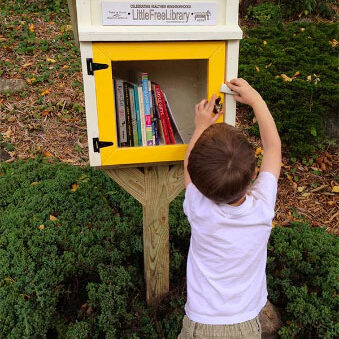Mina’s Matchbox by Yoko Ogawa, translated by Stephen Snyder
Lately, I’ve become very tired of reading about abuse whether it be abandonment or dismemberment or any trauma in between. Is there a well-written angst-free novel out there? Yes! I found one! If you, like me, just want to take a break and read a little ray of sunshine, try Mina’s Matchbox by Yoko Ogawa, translated by Stephen Snyder.

Source: NY Times Hwashin Choi
Yoko Ogawa presents the story as a memory. Our narrator, Tomoko travels back in time thirty years to 1972, when as a 12-year-old girl, she left her widowed mother in Tokyo to spend a year in Ashiya with her maternal aunt and her husband, heir to a soft drink fortune. The family includes Ryuichi, her older, male cousin who is away at boarding school in Switzerland; Mina, her younger cousin; her uncle and aunt; and Mina’s warm, Berlin-born eighty-three year old paternal grandmother, Rosa, who moved to Japan 40 years earlier but struggles with the Japanese language. Rounding out the household are the house support personnel Yoneda-san, the family housekeeper and Kobayashi-san, the family gardener, and the family pet, a pygmy hippopotamus named Pochiko. A member of an endangered species, Pochiko is the sole remnant of a zoo that once existed on the estate before World War II. Each morning, Mina, regarded as too frail to walk to school, rides on Pochiko’s back, escorted by a groundskeeper who leads the animal with a ribboned leash.
In this beautiful coming of age story Yoko Ogawa paints a vivid picture of the events in Japan in the early 1970s. Yet I think it is the characters, not the events, that make Mina’s Matchbox such a pleasure to read. Tomoko’s cousin Mina is precocious, asthmatic, and book-loving, with a secret hobby of collecting matchboxes and writing stories inspired by their illustrations. She is a year younger than our narrator and the two quickly become inseparable. Together, they obsess over the 1972 Japanese Olympic volleyball team, wait for a predicted meteor shower, and develop crushes on the librarian and the deliveryman for Mina’s father’s company.
Other characters include Tomoko’s handsome, charismatic half-German half-Japanese Mercedes-driving uncle, who confidently sits as the family’s patriarch but who is mysteriously more absent than not. Tomoko remembers him as follows:
It was true, my uncle had a genius for making other people happy. And in turn, everyone loved my uncle. Even Yoneda-san had long since taken to referring to him affectionately as “Little Ken.’ Everyone wanted to hear his stories and tell him theirs. In any gathering, he could immediately sense who was bored or feeling weary, and he would find the right topic to cheer them up. He had a talent for turning any mishap into an amusing story, or adding a bit of fiction to a small happiness to make it a great joy. A simple conversation with him made you feel as though you were somehow special. [p. 24]
My favorite character was Tomoko’s aunt who spends much of her time alone in the study, smoking, drinking, and obsessively searching for typographical errors.
Needless to say, for her the goal of searching for typos was not to receive gifts of thanks. Nor did I really believe that my aunt was so meticulous she found it impossible to overlook the tiniest mistake. No, she was content simply to journey through the desert of characters, searching for every single typo buried at her feet. They were jewels glittering in a sea of sand, she said, and if no one dug them up, they would always remain hidden. If no one noticed them, they would be trampled underfoot and left behind — something my aunt couldn’t bear.
The smoking room, as its name suggested, was for smoking and drinking, but at the same time it was a place devoted to these voyages through the desert. It was there that my aunt spent the better part of her days, and no one but her had any business there. Mina, of course, was forbidden to enter for fear that the smoke would bring on an attack, and Grandmother Rosa hated the smell of whiskey. The drawers of the display cabinet, which presumably had once held imported cigars, now contained boxes of the domestic brand of cigarettes that my aunt preferred, and my uncle had long ago stopped inviting guests into the room.
I was the one exception. I’m not sure why, but whenever my aunt shut herself away in the smoking room, I felt restless. I’d go and press my ear against the door. My parents in Okayama never touched a drop of alcohol, which may be why I feared the stuff more than I needed to. No matter how hard I listened at the door, though, I could never hear anything, and so eventually, I’d always end up knocking.
My aunt would be sitting there, pencil stub in hand, puffing incessantly on her cigarette and tracing her finger across pages of characters, sifting one by one through her grains of sand. She never seemed annoyed when I interrupted her; she just murmured my name and then went right back to her task. At times she’d be reading a leather-bound book, others nothing more than a crude leaflet, but the distinction seemed not to matter to her at all. The important thing was not the quality of the territory she was traversing but the endless characters themselves. She’d sift and sift, but only perfect, proper characters would flow through her fingers. Yet she never gave up, bending over again and again. Plunging her hands into the sand. Back bent, breathing low, even forgetting to blink, she’d stare intently at her fingertips. [pp. 130-131]
Though she could have had all the real jewels she might have wished for, the only ones my aunt wanted were the typos. She found comfort not in glittering rings or necklaces that so insistently called attention to themselves, but rather from typos abandoned in inconspicuous places. On nights when my uncle wasn’t at home, or when Mina was in the hospital, she pored over her typos with the same care someone else might have reserved for real jewels, and the next morning she’d slip the errant words into an envelope and, praying that they’d find their way back to their places of origin, take them off to the mailbox. [p. 132]
Yoko Ogawa’s additional translated work includes the three novellas published as The Diving Pool, The Housekeeper and the Professor, a novel about a brilliant mathematician with short-term memory and the housekeeper who cares for him, and Hotel Iris. Although some reviewers will disagree, I would say if you have time to read only one of Yoko Ogawa’s books, try the sweet and uncomplicated Mina’s Matchbox.
Additional reviews I recommend are Alison Fincher’s of Mina’s Matchbox and 5 Reviews of 5 Big Books of 2024.

















